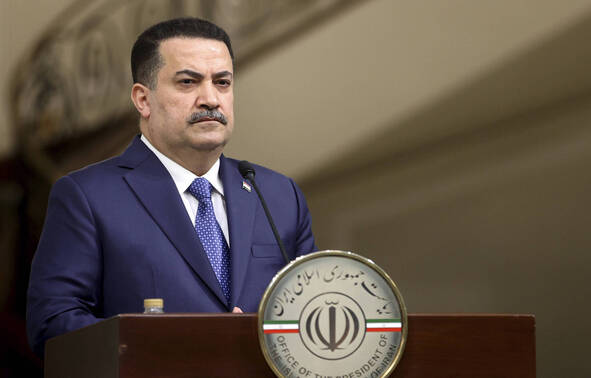The escalating conflict between Israel and Hamas has once again plunged the Gaza Strip into a humanitarian crisis, prompting international concern and calls for a resolution. Following a two-month truce, Israel resumed its military offensive in Gaza on March 18th, 2024, in response to previous attacks by Hamas, further exacerbating the already dire situation in the Palestinian territory. The Israeli military launched “extensive strikes,” codenamed Operation Gideon’s Chariots, aiming to achieve what they termed “all the war’s objectives,” including the release of hostages and the defeat of Hamas. This offensive involved mobilizing troops and striking over 150 alleged “terror targets” within 24 hours, resulting in a significant loss of life and widespread destruction. The reported death toll in Gaza reached 100 on Friday alone, rising to at least 140 by Saturday, as per reports.
Amidst the escalating violence and rising death toll, Iraq’s Prime Minister, Mohammed Shia al-Sudani, announced a $40 million pledge towards the reconstruction of both Lebanon and Gaza. This commitment was made during an Arab League summit held in Baghdad, signaling a regional effort to address the humanitarian crisis unfolding in the aftermath of the Israeli offensive. The summit highlighted the urgent need for unified action and emphasized the importance of addressing the underlying causes of the protracted conflict. The $40 million pledge, with $20 million allocated to each territory, underscores Iraq’s intent to contribute to rebuilding efforts and alleviating the suffering of those affected by the conflict. The allocation towards Lebanon reflects an understanding of the interconnected regional challenges, particularly given past conflicts involving Israel and its neighboring countries.
The Arab League summit served as a platform for regional leaders to collectively address the escalating crisis in Gaza and advocate for a cohesive national agenda in Palestine. The summit participants called for an immediate end to the violence and killing in Gaza, emphasizing the need for international support to address the humanitarian crisis. They stressed the urgency of finding a sustainable resolution to the ongoing conflict, recognizing the devastating impact on civilian populations and the region’s stability. The leaders’ calls for international involvement reflect a desire for a broader coalition to address the complex issues fueling the conflict and provide much-needed humanitarian aid.
The Israeli military offensive and the subsequent humanitarian crisis have placed renewed pressure on Prime Minister Benjamin Netanyahu to lift the sweeping aid blockade imposed on Gaza. Non-governmental organizations (NGOs) operating in the region have issued dire warnings about critical shortages of essential supplies, including food, clean water, fuel, and medicines. The blockade has severely restricted the flow of essential goods and services into Gaza, exacerbating the existing humanitarian challenges and further impacting the vulnerable population. The intensified offensive and its devastating consequences have highlighted the urgent need to address the blockade and facilitate the delivery of vital aid to those in need.
The escalating conflict and its humanitarian consequences underscore the complexity of the situation in Gaza and the need for a multi-faceted approach to address the root causes of the conflict. The Arab League summit’s call for a cohesive national agenda in Palestine reflects a recognition of the need for intra-Palestinian reconciliation and a united front in negotiations with Israel. The international community plays a crucial role in mediating the conflict, providing humanitarian assistance, and supporting efforts to rebuild Gaza and create a path toward a sustainable peace. Addressing the underlying political and economic issues that fuel the conflict is essential to achieving long-term stability and preventing further cycles of violence.
The pledge by Iraq’s Prime Minister to contribute to the reconstruction of Gaza and Lebanon represents a tangible step towards addressing the immediate humanitarian needs resulting from the conflict. However, a lasting solution requires a comprehensive strategy that includes addressing the underlying political and economic challenges, promoting dialogue and reconciliation, and ensuring unimpeded access to humanitarian aid. The international community must work in concert to support these efforts and create conditions conducive to a just and lasting peace in the region. The continued violence and suffering in Gaza underscore the urgent need for coordinated action and a commitment to finding a sustainable resolution to this protracted conflict.














